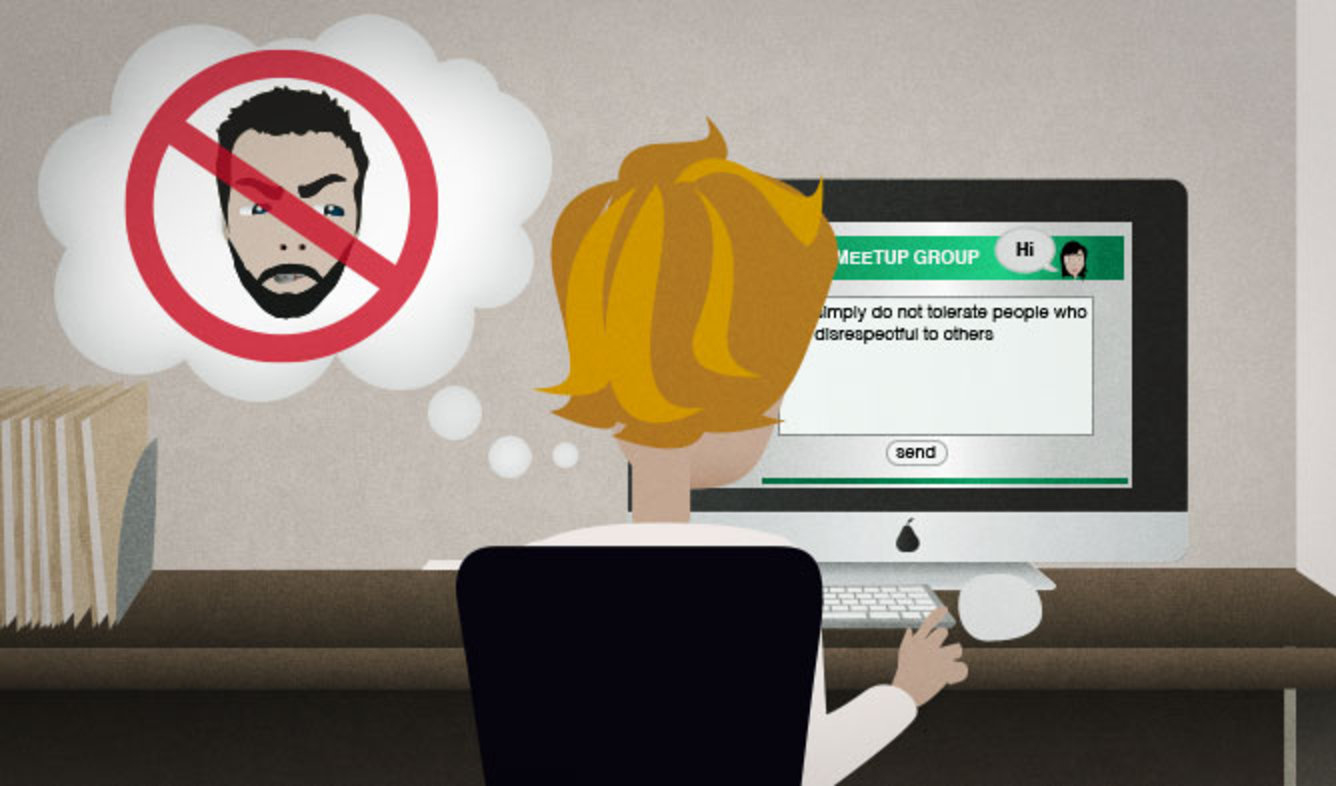“We simply do not tolerate people who are disrespectful to others.”
You're the organizer of a meetup group for people who are interested in public speaking. You want to have strict rules for your group about being nice to other members. You're writing about one of these rules on your group's website.
We simply do not tolerate people who are disrespectful to others.
Want Video and Sound? Follow us on YouTube

others
"Others" is a formal way to say "other people":
Please be respectful of others.
Kids who go to preschool learn to play well with others.
(someone) does not tolerate (something)
When you "do not tolerate" something, it means that you will not allow it. For example:
I do not tolerate excuses!
They do not tolerate mistakes.
This expression sounds strict and formal.
(someone) is disrespectful to (some people)
Being "disrespectful to" people includes calling them names, being rude to them, not listening to what they're saying, and so on.
You can't expect to be disrespectful to your teachers and still be rewarded with good grades and recommendations.
Another preposition that you can use after "disrespectful" is "toward":
She was disrespectful toward me and my entire family.
You can also use the word "disrespectful" by itself:
There's no need to be disrespectful!
people who (do something)
You can talk about people who all have the same quality with the phrase "people who ___":
People who talk with their mouth full are so rude!
I get along well with people who are creative.
simply not
Put the word "simply" in a negative sentence to make the negative more clear and complete. For example:
I'm simply not ready.
This means that you're completely not ready. It's more clear than just saying "I'm not ready."
You can use "simply" in front of a negative verb as well:
We simply can't accept cheating in any form.
